The Free Press Story
Robert W. McChesney, John Nichols and Josh Silver decide to launch a nonprofit devoted to fighting unchecked media consolidation, strengthening press freedom, supporting independent journalism and protecting public media. Kimberly Longey helps turn their concept into an organization. On Aug. 14, with a handful of staff working out of a small apartment in Northampton, Massachusetts, Free Press is incorporated.
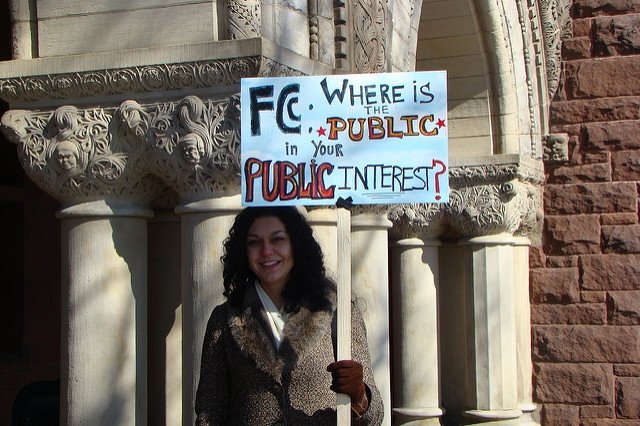
Free Press and our allies mobilize more than 3 million people to speak out after the FCC guts longstanding media-ownership rules.

We organize the first-ever National Conference for Media Reform, held in Madison, Wisconsin. Veteran journalist Bill Moyers tells the crowd of 1,700 activists: “It’s your fight now. Look around. You’re not alone.”
We work with grassroots allies to organize public turnout at FCC field hearings across the country. At a hearing in San Antonio, commissioners hear more than six hours of testimony opposing media consolidation from hundreds of students, labor organizers and civil-rights activists.
In our first campaign targeting the right-wing Sinclair Broadcast Group, we blast the company for its plan to air a documentary defaming presidential candidate John Kerry right before Election Day. In response to the outcry, Sinclair backs down from plans to air the film.

Free Press and the Center for Media and Democracy file a complaint with the FCC that cites hundreds of incidents in which broadcasters snuck fake-news segments into their programs. A month later, the FCC agrees to investigate and fine stations under rules banning payola and covert propaganda.
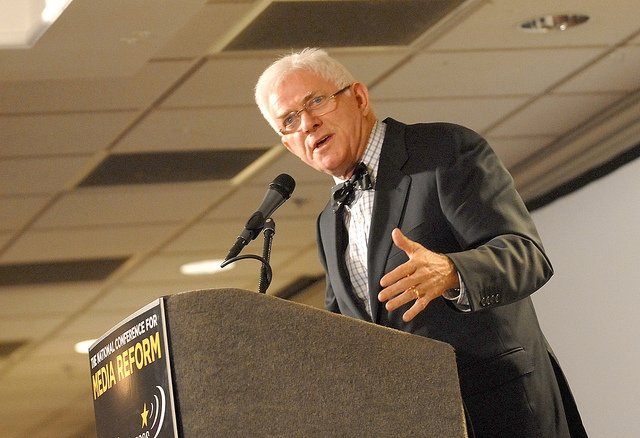
More than 2,000 attendees flock to St. Louis for the National Conference for Media Reform. Highlights include appearances from Phil Donahue, Bill Moyers and Patti Smith.
We deliver more than a million signatures in support of public broadcasting at a rally on Capitol Hill. Days later, with dozens of Republicans crossing the aisle, Congress rejects funding cuts proposed for NPR and PBS

Kenneth Tomlinson, the Republican chairman of the Corporation for Public Broadcasting, steps down after we deliver nearly 100,000 petitions calling for his removal because he misused federal funds and hired investigators to expose “liberal bias” at PBS.
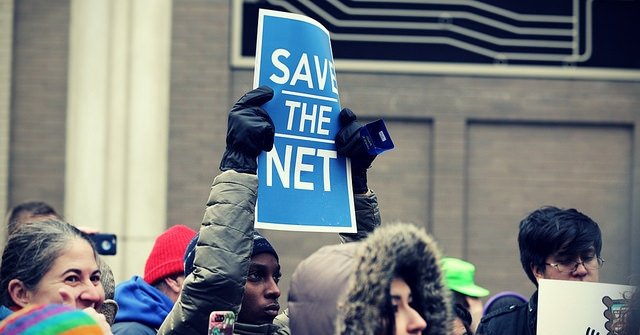
We launch Save the Internet, the first-ever U.S. campaign for Net Neutrality. This historic effort unites a broad and diverse coalition that grows to include millions of activists and thousands of groups.
We release Out of the Picture, the first in a series of groundbreaking reports on the disastrous impacts of media consolidation. Our study offers the first comprehensive analysis of the dismal rates of media ownership among women and people of color.
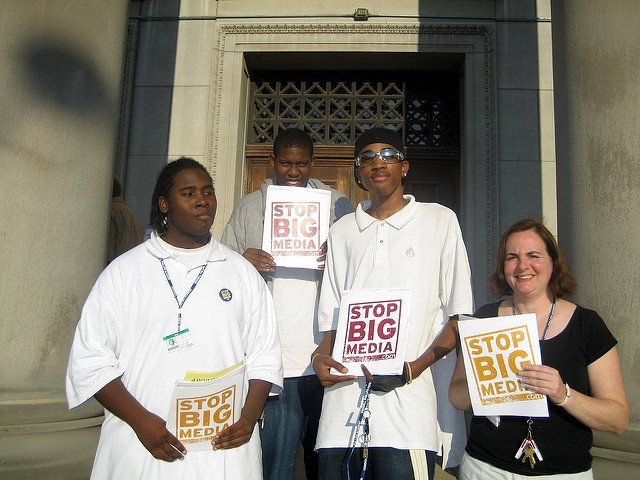
A Free Press campaign pushes the five FCC commissioners to go to Los Angeles to attend — for the first time as a full group — a public hearing on media ownership. This is the first of nine public hearings we organize to give people the chance to testify about how media consolidation has harmed their communities.
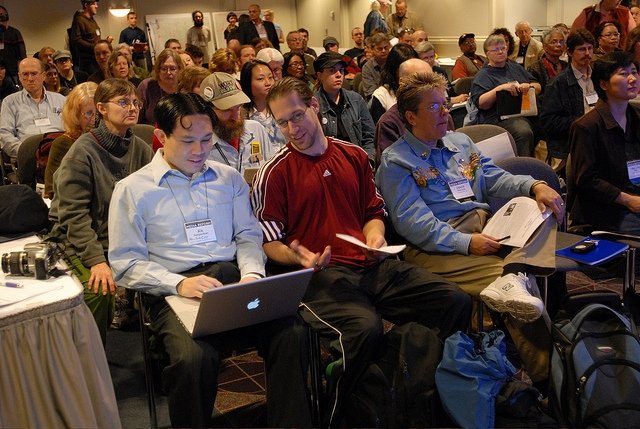
More than 2,500 people hit Memphis for the National Conference for Media Reform, where speakers include Geena Davis and the Rev. Al Green’s Gospel Choir.

Our Net Neutrality video Independence Day wins a Webby award for best public-service video, and SavetheInternet.com is named best activist website.
We lead efforts to expose phone-company censorship after Verizon blocks text messages NARAL Pro-Choice America sent to its own members.
In response to a Free Press complaint, the FCC launches an investigation into Comcast for illegally blocking internet traffic. At an agency hearing a month later, we catch Comcast paying seat fillers to crowd out the general public and cheer industry officials.
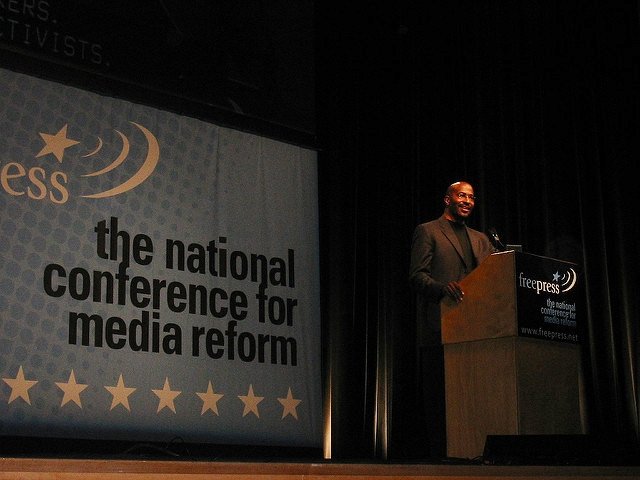
Photo credit: Chuck Robinson
More than 3,000 attendees head to Minneapolis for the National Conference for Media Reform, where speakers include Arianna Huffington, activist Van Jones (pictured) and Dan Rather.

President Obama signs into law the American Reinvestment and Recovery Act, which includes $7.2 billion to expand broadband access and adoption — thanks in no small part to Free Press’ advocacy. Obama also directs the FCC to produce its first national broadband plan.
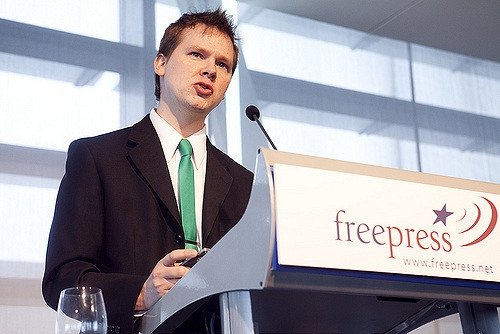
We publish the book Changing Media: Public Interest Policies for the Digital Age to coincide with our first policy summit in Washington, D.C.
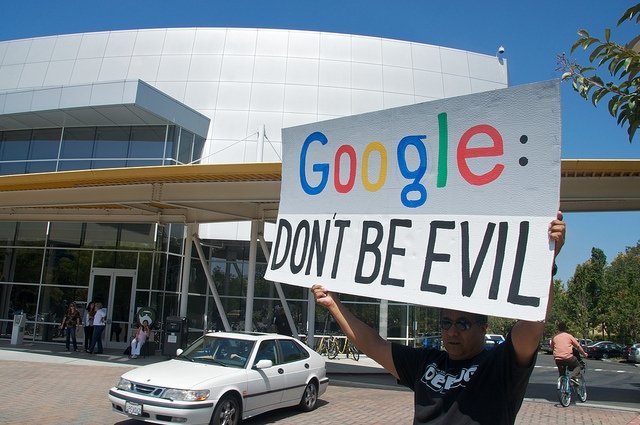
Free Press and allies organize the first major protest ever held outside Google headquarters. Chanting the company’s slogan — “Don’t be evil” — the protesters denounce the company for striking a pact with Verizon that jeopardizes Net Neutrality. The deal later falls apart.
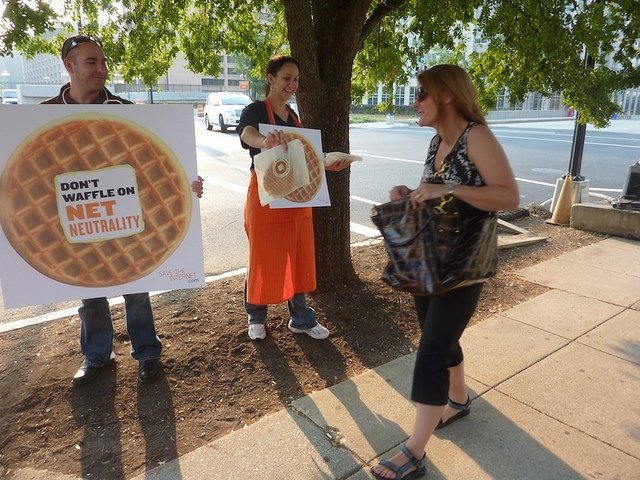
Our Save the Internet campaign inspires 2 million people to speak out in favor of real Net Neutrality under Title II of the Communications Act. The FCC ignores this call and instead passes weaker rules riddled with loopholes. The rules are overturned in court four years later.

In response to advocacy from Prometheus Radio Project, Free Press and other groups, Congress passes and President Obama signs the Local Community Radio Act, making room on the radio dial for hundreds of new noncommercial Low Power FM stations.
More than a million people take action in our campaign opposing the latest congressional effort to defund public media. The cast of Sesame Street joins Free Press and union leaders in a protest on Capitol Hill.
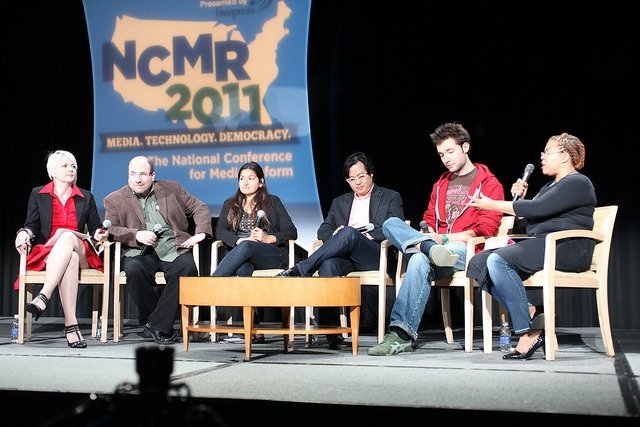
More than 2,000 people congregate in Boston for the National Conference for Media Reform. Speakers include House Democratic Leader Nancy Pelosi and FCC Commissioner Michael Copps. During the event, Craig Aaron takes the helm as Free Press’ president and CEO.

In a case argued by Free Press, a federal appeals court blocks the FCC’s latest attempt to weaken media-ownership limits and allow a company to own a newspaper and broadcast station in the same market.
Following months of Free Press advocacy and activism, the Justice Department blocks the AT&T/T-Mobile merger, a deal that would have left two companies in control of 70 percent of the wireless market. The FCC follows suit with a decision that cites our research more than 70 times, and AT&T abandons the deal.
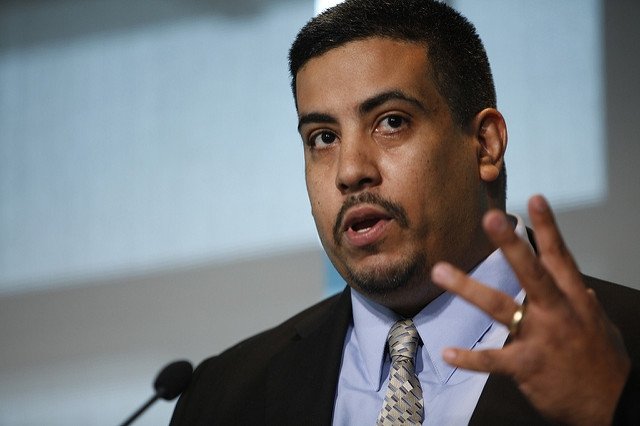
Free Press’ Joseph Torres kicks off the national book tour for News for All the People: The Epic Story of Race and the American Media, a New York Times bestseller he co-authored with Daily News columnist and Democracy Now! co-host Juan González.
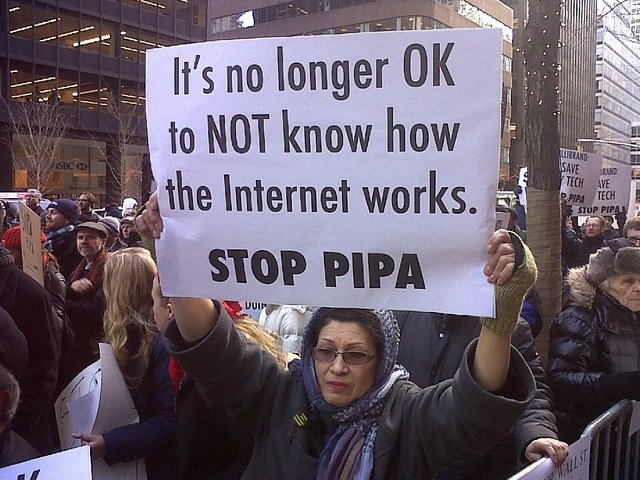
Photo credit: Andrew Dallos
We help organize a day of action in which millions call Congress, activists take to the streets and more than 100,000 websites go dark to protest the SOPA and PIPA web-censorship bills. Sponsors are forced to shelve both bills.

Years of Free Press advocacy pay off when the FCC passes rules requiring broadcasters to post political ad-spending information online, enabling people to find out who’s paying to sway their vote.
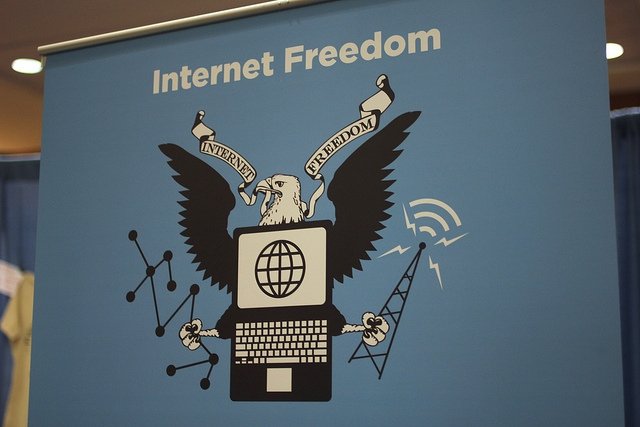
Free Press and allies create the Declaration of Internet Freedom, which outlines five essential principles: free expression, access, openness, innovation and privacy. The document is translated into 70 languages, and nearly 2,000 groups from 130 countries sign on in support.
Free Press threatens to file an FCC complaint against AT&T for forcing pricey plans on customers who want to use Apple’s FaceTime video-chat app. AT&T reverses course and pledges to make the app available to all customers.
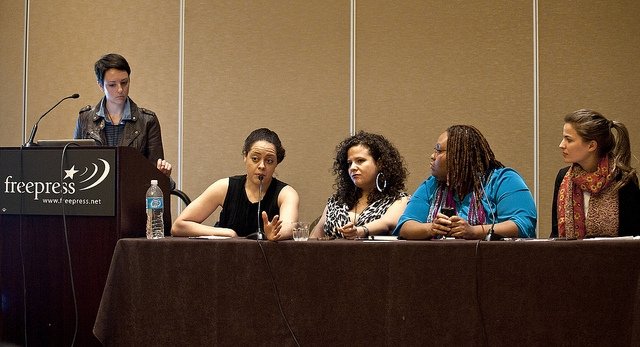
More than 2,000 activists, policymakers, artists and journalists from every state and dozens of countries converge in Denver for the National Conference for Media Reform.
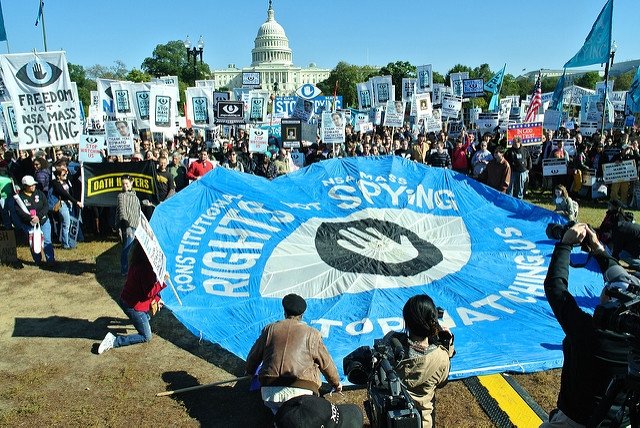
Free Press helps organize and launch the StopWatching.Us coalition in the wake of revelations about the NSA’s widespread surveillance. In October, we play a leading role in organizing the biggest domestic protest ever held against unchecked government spying.
Following a decade of advocacy from prison-reform, media-justice and civil-rights groups, the FCC votes to reduce exorbitant calling rates for prisoners and their families. Free Press filed comments and lobbied at the agency on behalf of a coalition of allies.
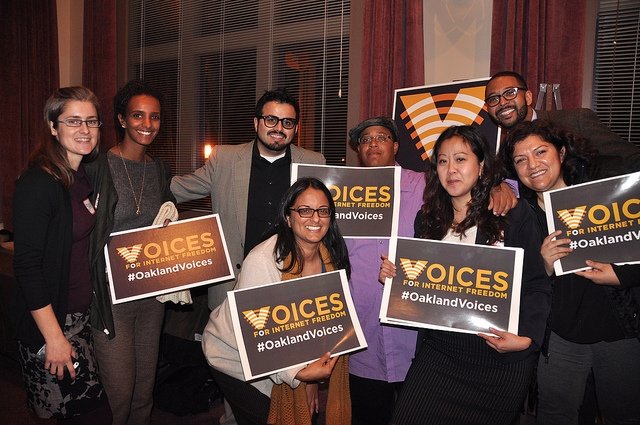
Free Press and the Center for Media Justice launch Voices for Internet Freedom, a project that fights for the digital rights of communities of color. Color Of Change, the National Hispanic Media Coalition and 18 Million Rising later join to help lead the coalition.
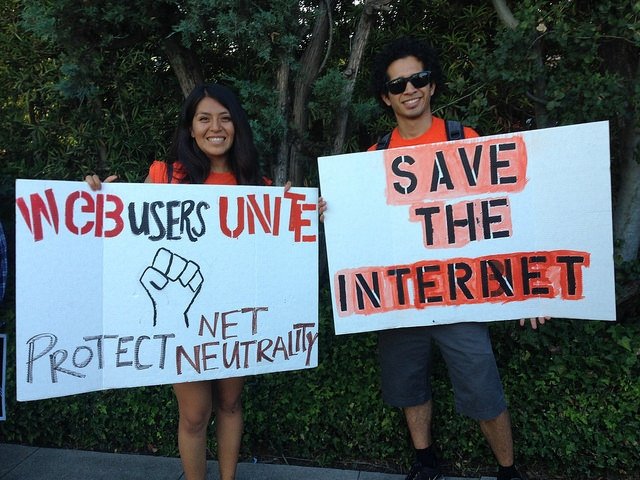
A federal appeals court overturns the FCC’s weak Net Neutrality rules and we swing into action, pushing the agency to adopt strong protections under Title II of the Communications Act.
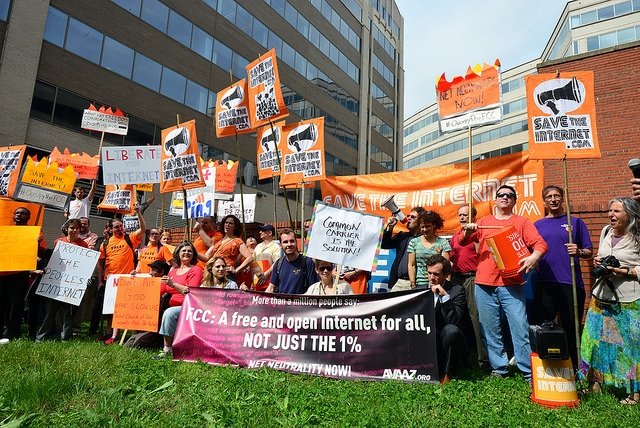
Free Press organizes a national day of protests — including a huge rally right outside the FCC — the day the agency releases its industry-friendly Net Neutrality proposal.
Free Press and allies organize the Internet Slowdown, one of the biggest days of online protest ever. Internet users, tech companies, public-interest groups and more than 10,000 websites join forces to demonstrate overwhelming support for stronger Net Neutrality protections.
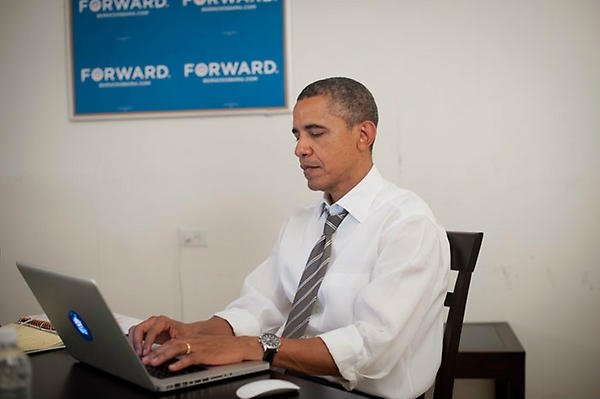
Responding to months of pressure — including two protests we organized outside presidential fundraisers — President Obama releases a video calling on the FCC to enact Title II Net Neutrality protections.
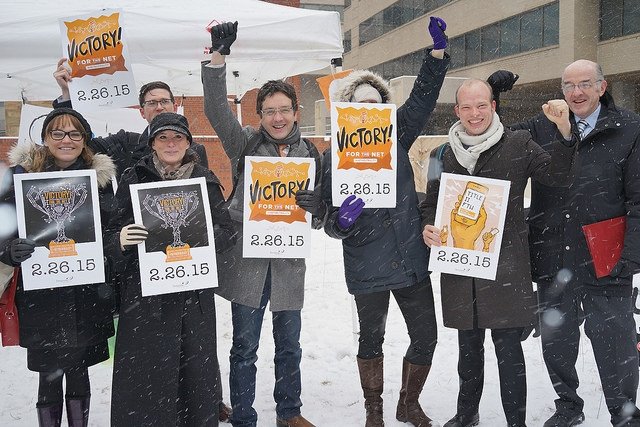
Following a year of relentless activism and advocacy from Free Press, other public-interest groups and millions of internet users, the FCC adopts comprehensive Title II Net Neutrality rules. This victory — more than a decade in the making — was one of the biggest milestones in the FCC’s history.
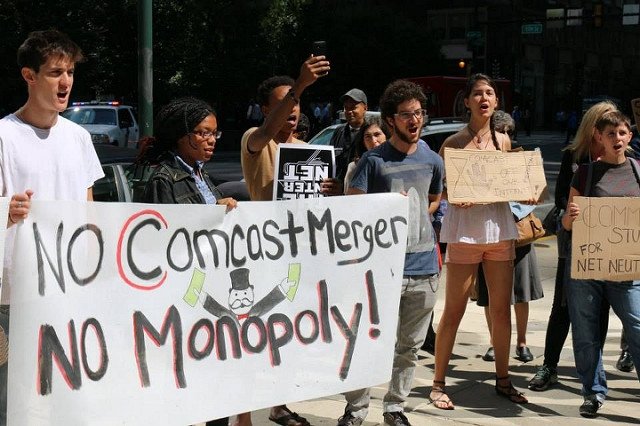
Overwhelming opposition to the Comcast-Time Warner Cable merger from Free Press and millions of people prompts the FCC and Justice Department to signal their opposition to the deal. A merger once viewed as inevitable collapses.
Free Press voices unequivocal support for Black Lives Matter activists in a message to our members, pledging to devote more of our energy and resources as partners in the fight for racial justice. This post makes public our commitment to working to dismantle structural racism and confront white supremacy inside and outside the organization.
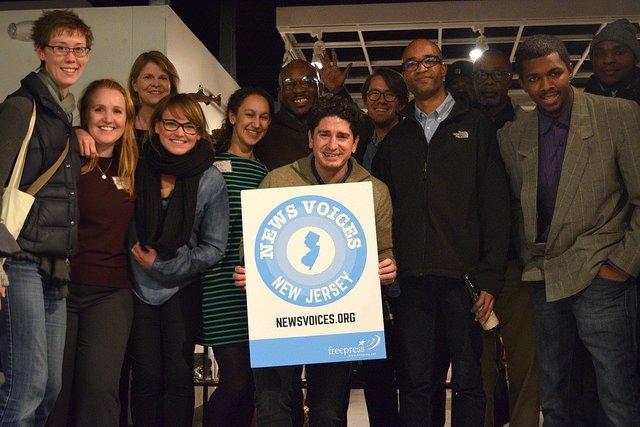
Photo credit: Vanessa Maria Graber
We launch News Voices: New Jersey to transform local news and address the impacts of rampant media consolidation. At a series of events across the state, we bring together local residents, community leaders and working journalists to reimagine the future of local news.
Free Press joins oral arguments to defend the FCC’s Net Neutrality rules in federal court against an industry challenge. The court upholds the protections in their entirety in a June 2016 ruling.
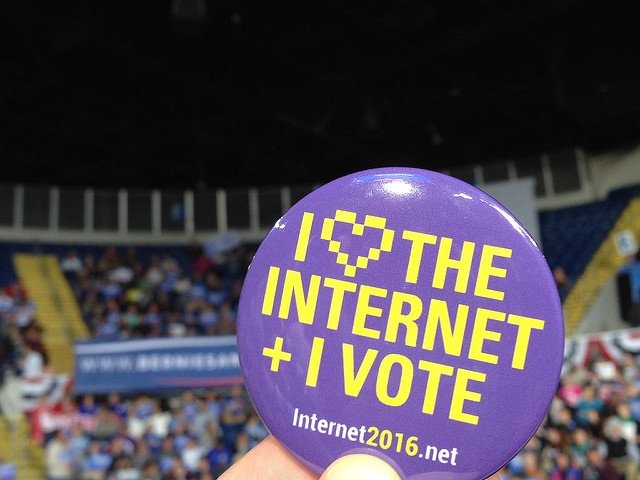
We launch the Internet 2016 campaign to urge presidential candidates to protect Net Neutrality, promote affordable internet access and end mass surveillance. Activists show up at more than 40 campaign events during the primaries. Our Internet Policy Platform is endorsed by 17 groups and influences the Democratic Party platform.
In response to years of campaigning from Free Press and allies, the FCC overhauls the Lifeline program, voting to subsidize broadband connections for families living below the poverty line.
After the election of Donald Trump, Free Press refuses to “enable, legitimize or normalize” the new president’s authoritarian agenda. The only option, we write, “is resistance.”
Free Press releases Digital Denied: The Impact of Systemic Racial Discrimination on Home-Internet Adoption. This groundbreaking report shows that the digital divide disproportionately impacts people of color of all income levels.
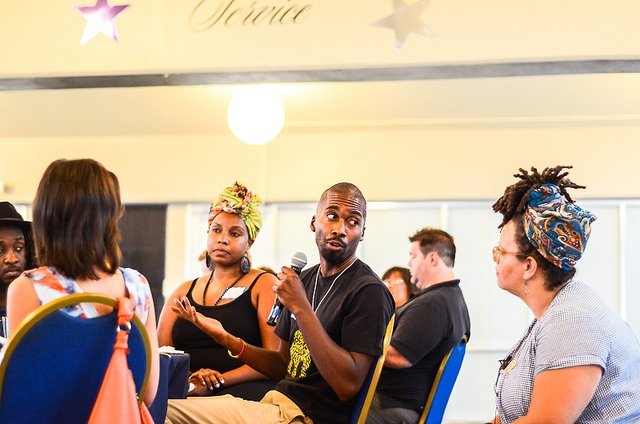
Photo credit: Jonathan Cooper
Free Press launches News Voices: North Carolina. We host small gatherings, trainings and public forums throughout the state and foster collaborations between newsrooms and local groups.
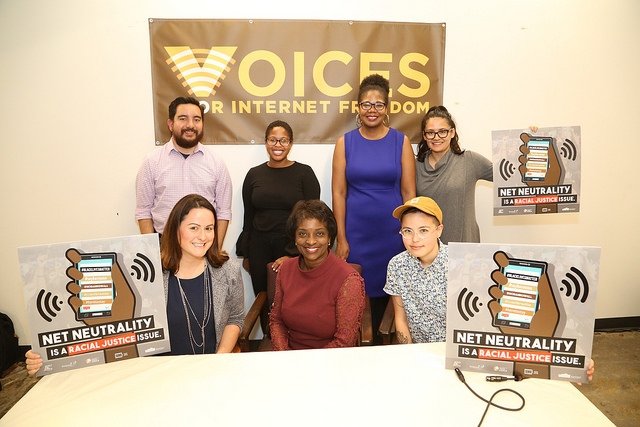
Photo credit: National Hispanic Media Coalition
Free Press and our Voices for Internet Freedom partners host an event in Los Angeles’ Skid Row neighborhood with FCC Commissioner Mignon Clyburn. Attendees — including seniors, unhoused residents and students — discuss why the internet is so crucial to their health and well-being.
We team up with our Battle for the Net partners to organize an internet-wide day of action against FCC Chairman Ajit Pai’s plan to destroy Net Neutrality. Five million people email Congress, and 2 million send comments to the FCC. The action’s success inspires the launch of Team Internet, a project that uses innovative organizing techniques to build local volunteer networks fighting for Net Neutrality across the country.
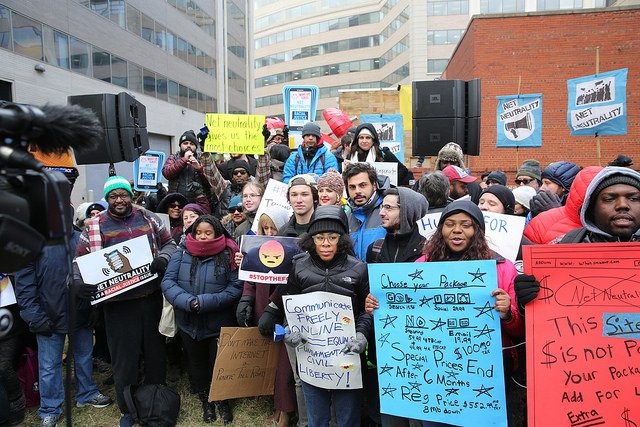
Photo credit: Maria Merkulova
Free Press and two allies help organize 700 Net Neutrality protests in one day — the largest public outpouring of support for internet freedom ever.
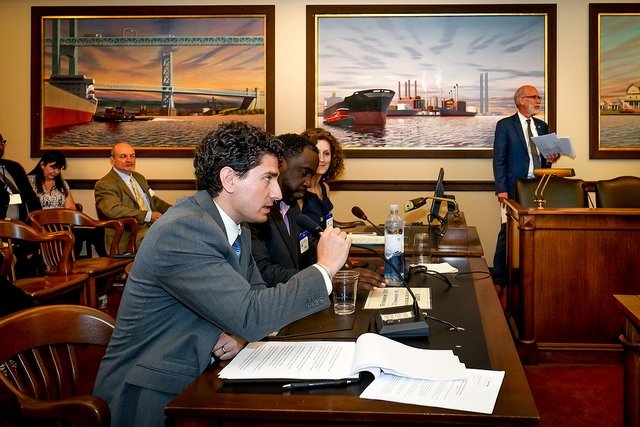
Photo credit: Timothy Karr
The New Jersey legislature passes the Civic Info Bill, legislation Free Press Action envisioned and drafted. The bill creates a nonprofit investing millions of dollars in projects designed to strengthen local journalism, foster community engagement and amplify the voices of underrepresented communities.
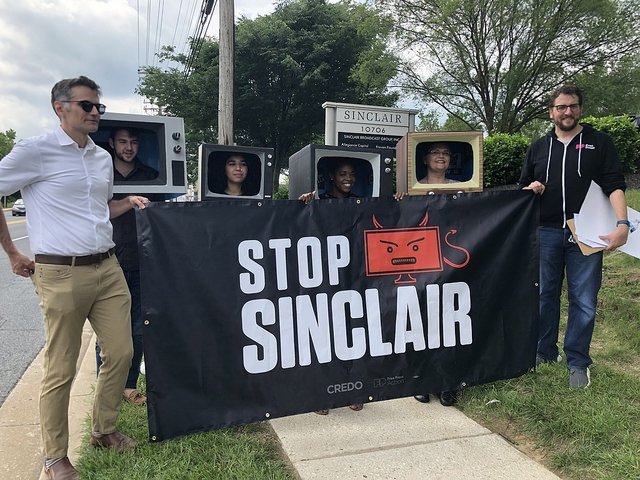
The FCC pulls the plug on the Sinclair-Tribune merger, a dangerous deal that would have enabled Sinclair to broadcast its racist, Islamophobic and xenophobic propaganda on TV stations reaching more than 70 percent of U.S. households. We fought the deal from the get-go, filing legal challenges and protesting outside Sinclair headquarters and the FCC.
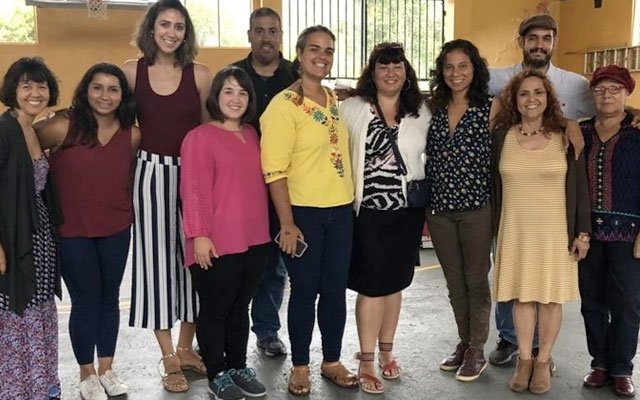
test caption
test credit
Four Free Press staff members travel to Puerto Rico to survey the devastating damage from Hurricanes Irma and Maria and host community “story circles” exploring the need for a resilient communications system on the islands.
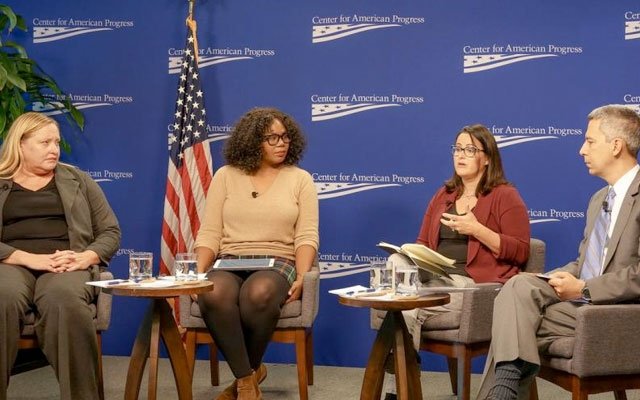
Photo credit: Timothy Karr
Free Press co-founds the Change the Terms coalition to push platforms like Facebook, Google and Twitter to crack down on hateful activities online.
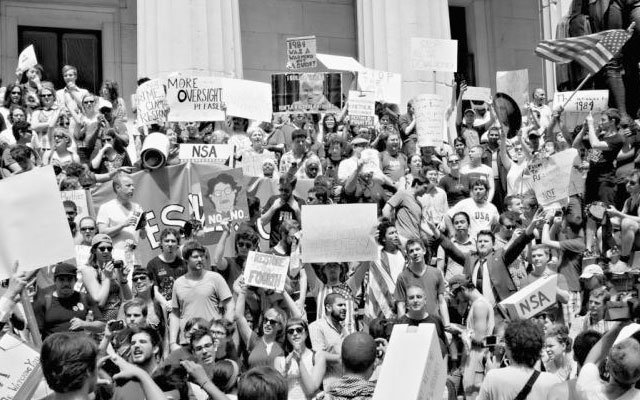
Photo credit: Timothy Karr
February 2019: Free Press releases Beyond Fixing Facebook, a groundbreaking proposal to tax online advertising and use the revenues to revitalize local journalism.
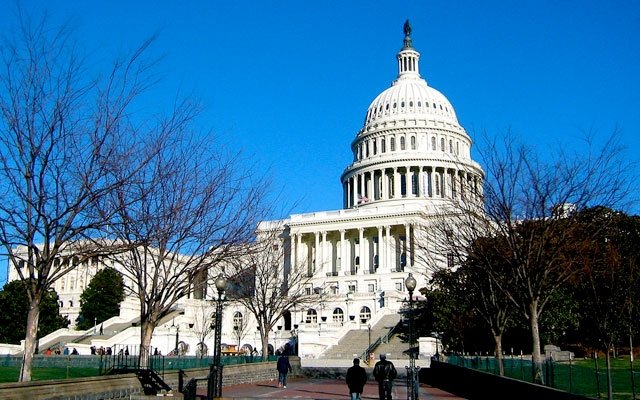
Photo credit: Original photo by Wikimedia Commons user Elliot P.
The House of Representatives passes the Save the Internet Act to reinstate Obama-era Net Neutrality protections. Every Democratic lawmaker votes in favor — the most members of Congress ever on the record in support of Title II Net Neutrality protections.
The federal appeals court in Philadelphia sides with Free Press and against the Trump FCC for failing to consider how its policy changes have harmed ownership opportunities for women and people of color. The court slams the FCC’s analysis as “so insubstantial that it would receive a failing grade in any introductory statistics class.
Judges on the appeals court in Washington, D.C., defer to the FCC on its decision to dismantle Net Neutrality protections, returning the issue to the agency.
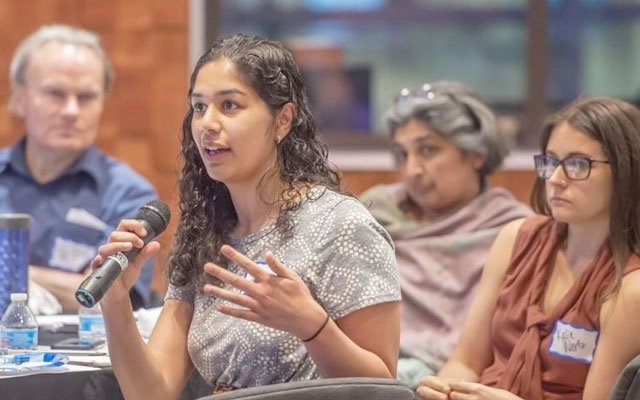
Photo credit: Jonathan A. Wilson, WHYY
Free Press launches the “Shift the Narrative” project with partners in Philadelphia to transform how local news outlets cover crime, policing, safety and trauma.
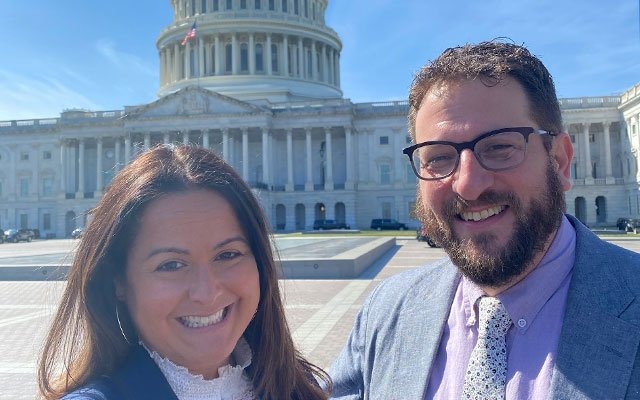
Jessica J. González is named co-CEO of Free Press and Free Press Action.
Free Press is one of the lead organizers of the “Stop Hate for Profit” boycott of Facebook, which persuades over 1,000 companies to pull advertisements from the platform.
Black staff at Free Press create the Media 2070 project and publish Media 2070: An Invitation to Dream Up Media Reparations, a visionary 100-page essay examining the history of anti-Black racism in the U.S. media system. Columbia Journalism Review names the essay one of its top-10 pieces of racial-justice coverage that year.

Photo credit: Original image by Flickr user Verkeorg
Free Press’ S. Derek Turner’s investigation exposes billions of dollars of waste and fraud in a rural broadband program under the Trump FCC. Spurred by the report, the Biden FCC later revokes nearly $2.5 billion in contracts from Elon Musk’s satellite-broadband provider and other companies.
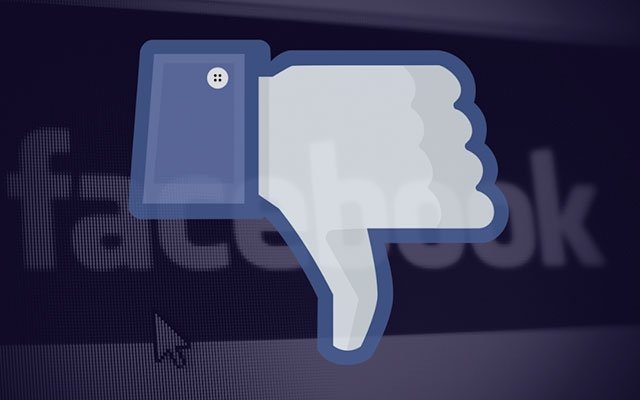
Free Press and allies launch #YaBastaFacebook (enough already, Facebook) — a campaign to stop the spread of Spanish-language disinformation on the platform.
In a case argued on the last day of the Trump administration, the Supreme Court rules against Free Press and its allies and for the FCC in the long-running case on the agency’s failures to study the impact of media-ownership deregulation on women and people of color.
The New York Attorney General’s Office finds that the broadband industry funded an illegal scheme to flood the Trump FCC with fake comments opposing Net Neutrality.
Members of Congress and more than 100 organizations, led by Free Press’ Media 2070 project, call on the FCC to formally investigate the history of racism at the agency.
President Biden signs a major infrastructure bill, which includes nearly $65 billion for broadband. Free Press Action’s advocacy helps secure a remarkable $14.2 billion in funding dedicated to broadband-affordability measures.
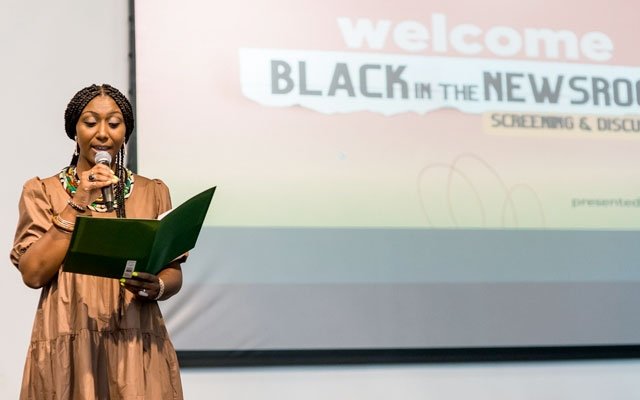
Media 2070 debuts the documentary Black in the Newsroom. Directed by Free Press’ Collette Watson, the film — which goes on to win multiple festival awards — examines what happens when a talented journalist endures systemic racism and low pay at The Arizona Republic.
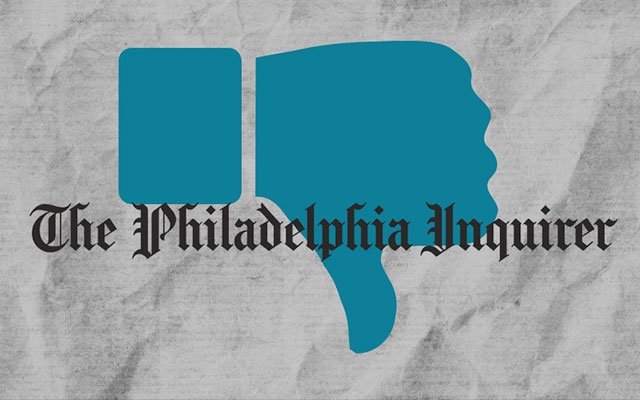
Alongside organizations representing journalists of color in Philadelphia, Free Press co-founds the Journalism Accountability Watchdog Network (JAWN) to address harmful coverage and newsroom practices at the Philadelphia Inquirer and other major news outlets in the city.
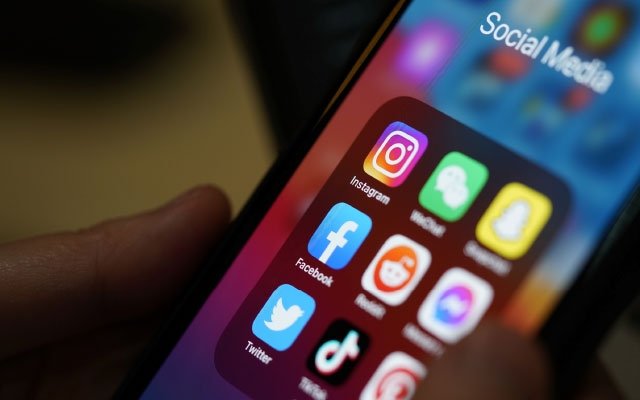
Free Press releases Empty Promises: Inside Big Tech’s Weak Effort to Fight Hate and Lies in 2022, a report revealing the ongoing failures of Meta, TikTok, Twitter and YouTube to curb the spread of election disinformation and extremism across their networks.
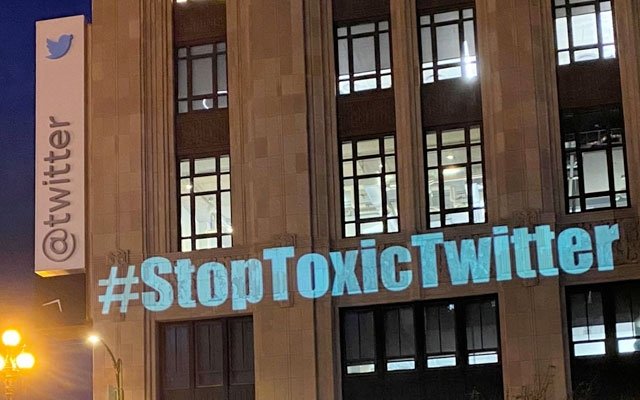
Photo credit: AE Marling
After Elon Musk’s takeover of Twitter, Free Press organizes the #StopToxicTwitter coalition, which grows to include more than 60 civil-rights and civil-society groups, and succeeds in pushing half of the company’s top-100 advertisers to stop their spending on the platform.

Photo credit: Original photo by Wikimedia Commons user Elliot P.
Congress passes the Martha Wright-Reed Just and Reasonable Communications Act, named in honor of the woman who fought for affordable prison-phone rates for more than 20 years. Wright-Reed was blind and could not travel long distances, and phone calls were the only way she could stay in touch with her grandson while he was incarcerated. The law gives the FCC the authority to cap these predatory rates.
Free Press’ Mike Rispoli co-authors The Roadmap for Local News, a research project and action plan to ensure that every U.S. community has access to civic news and information.
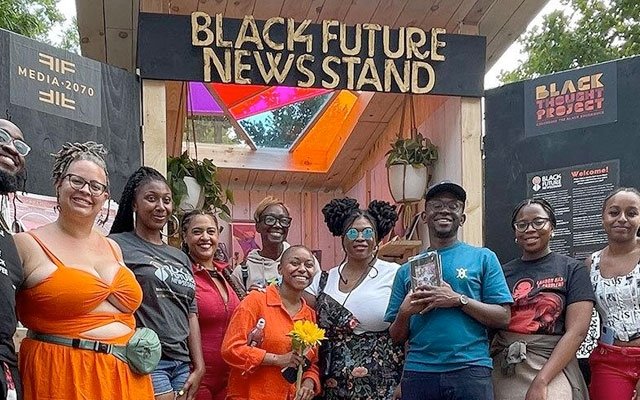
The Black Future Newsstand — a visionary art exhibit created by Media 2070 and the Black Thought Project — is unveiled in Harlem and asks: “What does a media that loves Black people look, feel and sound like in a future where reparations are real?”
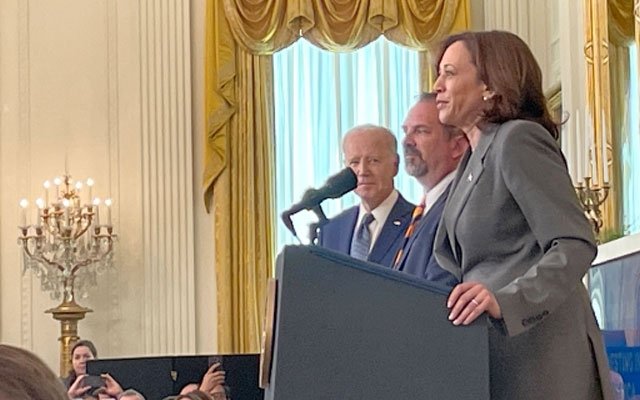
At an event at the White House, President Biden and Vice President Harris declare that broadband is an essential utility and pledge to end the digital divide by 2030. Free Press Action has helped push decision-makers to recognize how crucial high-speed internet is to everyday life.
Free Press celebrates its 20th anniversary!